Charles Goddard
Training-Free Tokenizer Transplantation via Orthogonal Matching Pursuit
Jun 07, 2025Abstract:We present a training-free method to transplant tokenizers in pretrained large language models (LLMs) by reconstructing unseen token embeddings via Orthogonal Matching Pursuit (OMP). Specifically, we approximate each out-of-vocabulary token as a sparse linear combination of shared tokens, in two phases: first, compute each new token's representation in the donor embedding space with a small dictionary of shared anchor tokens, then transfer these same sparse coefficients back into the base model's embedding space. On two challenging cross-tokenizer tasks--Llama$\to$Mistral NeMo (12B) and Qwen$\to$Llama (1B)--we show that OMP achieves best zero-shot preservation of the base model's performance across multiple benchmarks, while other zero-shot approaches degrade significantly. Compared to baselines (zero-init, mean-init, and existing approaches like WECHSEL, FOCUS, ZETT), OMP consistently achieves the best overall performance, effectively bridging large tokenizer discrepancies without gradient updates. Our analysis further identifies mismatched numerical tokenization schemes as a critical challenge for preserving mathematical reasoning capabilities. This technique enables direct reuse of pretrained model weights with new tokenizers, facilitating cross-tokenizer knowledge distillation, speculative decoding, ensembling, merging, and domain-specific vocabulary adaptations. We integrate our method into the open-source mergekit-tokensurgeon tool for post hoc vocabulary realignment.
Merging in a Bottle: Differentiable Adaptive Merging (DAM) and the Path from Averaging to Automation
Oct 10, 2024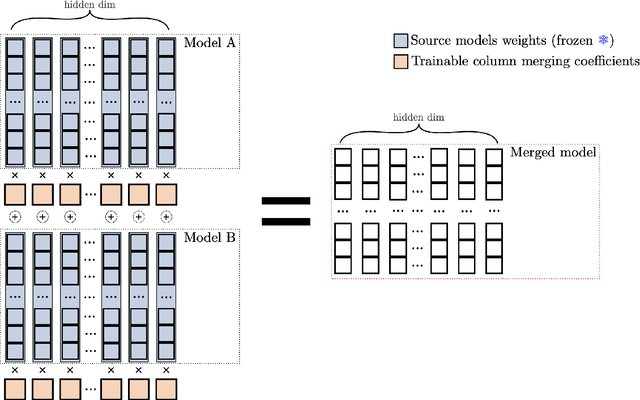


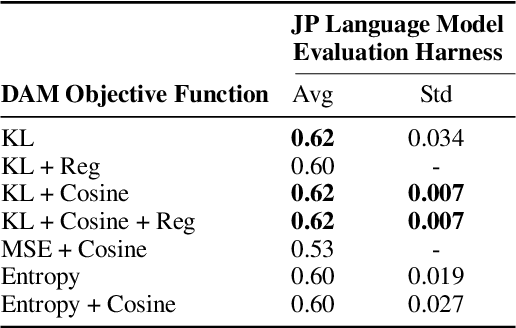
Abstract:By merging models, AI systems can combine the distinct strengths of separate language models, achieving a balance between multiple capabilities without requiring substantial retraining. However, the integration process can be intricate due to differences in training methods and fine-tuning, typically necessitating specialized knowledge and repeated refinement. This paper explores model merging techniques across a spectrum of complexity, examining where automated methods like evolutionary strategies stand compared to hyperparameter-driven approaches such as DARE, TIES-Merging and simpler methods like Model Soups. In addition, we introduce Differentiable Adaptive Merging (DAM), an efficient, adaptive merging approach as an alternative to evolutionary merging that optimizes model integration through scaling coefficients, minimizing computational demands. Our findings reveal that even simple averaging methods, like Model Soups, perform competitively when model similarity is high, underscoring each technique's unique strengths and limitations. We open-sourced DAM, including the implementation code and experiment pipeline, on GitHub: https://github.com/arcee-ai/DAM.
Domain Adaptation of Llama3-70B-Instruct through Continual Pre-Training and Model Merging: A Comprehensive Evaluation
Jun 21, 2024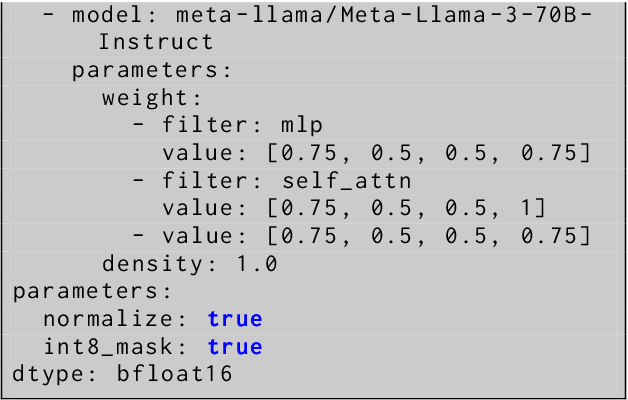
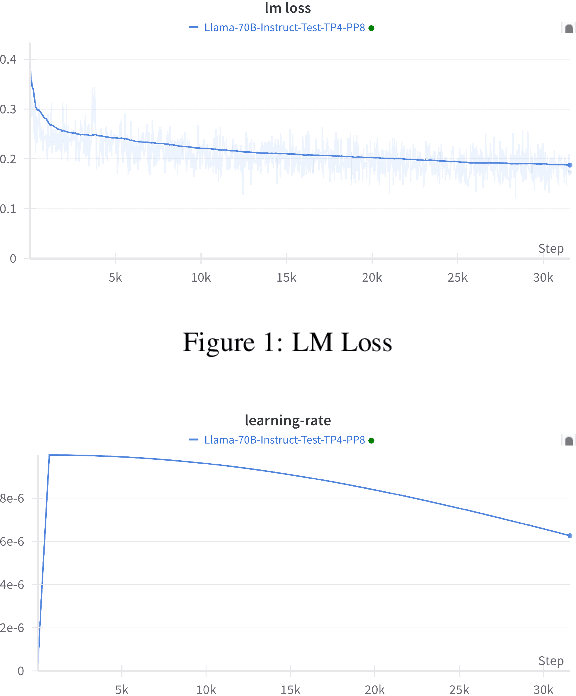
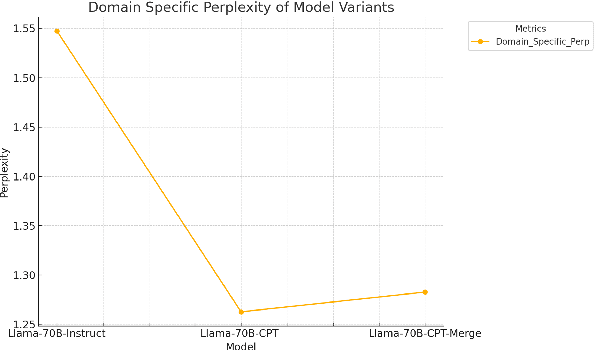
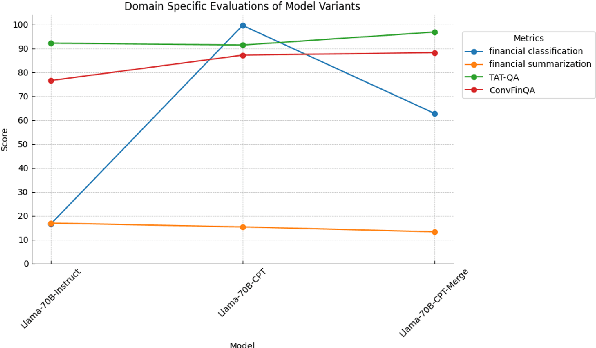
Abstract:We conducted extensive experiments on domain adaptation of the Meta-Llama-3-70B-Instruct model on SEC data, exploring its performance on both general and domain-specific benchmarks. Our focus included continual pre-training (CPT) and model merging, aiming to enhance the model's domain-specific capabilities while mitigating catastrophic forgetting. Through this study, we evaluated the impact of integrating financial regulatory data into a robust language model and examined the effectiveness of our model merging techniques in preserving and improving the model's instructive abilities. The model is accessible at hugging face: https://huggingface.co/arcee-ai/Llama-3-SEC-Base, arcee-ai/Llama-3-SEC-Base. This is an intermediate checkpoint of our final model, which has seen 20B tokens so far. The full model is still in the process of training. This is a preprint technical report with thorough evaluations to understand the entire process.
Arcee's MergeKit: A Toolkit for Merging Large Language Models
Mar 21, 2024Abstract:The rapid expansion of the open-source language model landscape presents an opportunity to merge the competencies of these model checkpoints by combining their parameters. Advances in transfer learning, the process of fine-tuning pretrained models for specific tasks, has resulted in the development of vast amounts of task-specific models, typically specialized in individual tasks and unable to utilize each other's strengths. Model merging facilitates the creation of multitask models without the need for additional training, offering a promising avenue for enhancing model performance and versatility. By preserving the intrinsic capabilities of the original models, model merging addresses complex challenges in AI - including the difficulties of catastrophic forgetting and multitask learning. To support this expanding area of research, we introduce MergeKit, a comprehensive, open-source library designed to facilitate the application of model merging strategies. MergeKit offers an extensible framework to efficiently merge models on any hardware, providing utility to researchers and practitioners. To date, thousands of models have been merged by the open-source community, leading to the creation of some of the worlds most powerful open-source model checkpoints, as assessed by the Open LLM Leaderboard. The library is accessible at https://github.com/arcee-ai/MergeKit.
 Add to Chrome
Add to Chrome Add to Firefox
Add to Firefox Add to Edge
Add to Edge